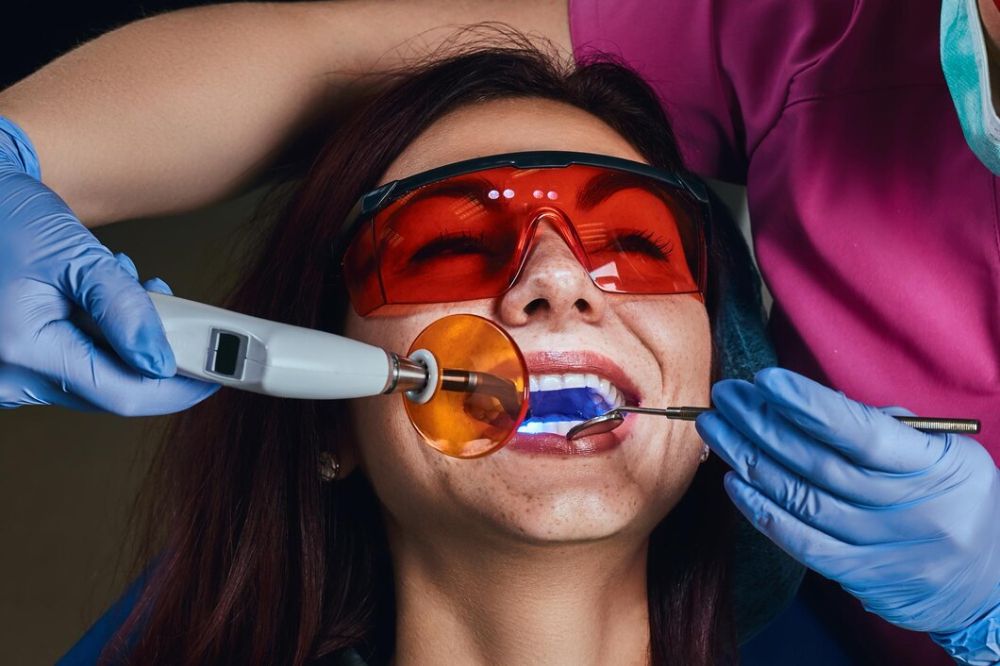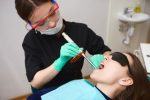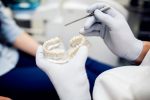
Do you feel like your teeth are not as bright as they used to be? Stains and discoloration can attack anyone; sometimes, whitening treatments do not suffice. On such occasions, many wonder: Is dental bonding in Fairview the safe option for a smile improvement? Bonding is a highly reputable cosmetic treatment for restoring both confidence and appearance.
What Is Dental Bonding?
Dental bonding is a simple cosmetic procedure that uses a tooth-coloured resin to cover imperfections. The resin is created, moulded, applied to your tooth, and dried using a special light. It covers stains, repairs small chips, and looks natural with the remaining teeth.
Is Dental Bonding Safe for Discoloured Teeth?
Yes, bonding is safe and is recommended in several cases. The resin used is nonabrasive to one’s natural teeth and gums. On the other hand, bonding does little or no enamel removal, so the natural extractions are kept; therefore, it is a conservative solution for those who want an option that minimally invades tissue.
When is the Right time for Dental Bonding?
If you have the following, bonding may be beneficial for you:
- Stains that don’t go away after whitening
- Teeth with small chips or tiny cracks
- Teeth with little gaps that you would like to close
- Teeth which are a little bit uneven
If you are uncertain whether this solution is the right one for you, then a dentist in Fairview can take a look at your smile and give you the best treatment.
What Are the Cosmetic Dental Bonding Options?
Bonding may be tailored to your smile improvement. Typical choices are:
- Colour matching: A resin that matches your natural teeth is selected
- Reshaping: Tooth edges are adjusted for better symmetry
- Coverage: One or several teeth are allowed to look better
Using these options of cosmetic dental bonding, a person can simply get a natural and finished look without the need for complex procedures.
Can Bonding Help Close Spaces Between Teeth?
Yes, bonding is a quick way to close small spaces. Instead of orthodontics, the dentist applies resin between the teeth, giving them a more even appearance. Many patients choose dental bonding for gaps because it is both affordable and fast.
How Long Does Bonding Last?
Bonding typically lasts 5–10 years, depending on habits and care. To maintain your results:
- Don’t bite hard things like pens or ice
- Clean your teeth daily by brushing and flossing
- See a dentist near you often for routine checkups
With proper care, bonding can last for years before needing touch-ups.
Why Choose Dental Bonding Near You?
In case it is your intention to revitalize your teeth in a good way, dental bonding will be an ideal solution for you. The treatment with bonding materials, compared to porcelain veneers or dental crowns, is a more rapid and less expensive procedure but maintains the same quality of beautification of the teeth.
Discover Your Ideal Smile – Visit Now!
Dental bonding is a safe, effective, and affordable way to improve stained teeth and other minor defects. Besides introducing you to the treatment options available, a Fairview Dental Clinic appointment will also be a step closer to a shining smile.
FAQs
Will bonded teeth stain over time?
Yes, the resin can stain from coffee, tea, or tobacco. Regular care and limiting staining foods helps preserve the colour.
Does dental bonding damage enamel?
No, bonding requires little to no enamel removal, making it a safe option.
Can whitening treatments change the colour of bonding?
No, whitening does not affect bonding resin. If the resin discolours, it may need to be replaced.
Is the dental bonding procedure uncomfortable?
Not at all. The procedure is usually so gentle and comfortable that most patients do not even ask for anesthesia.
Is bonding suitable for children?
Definitely, it is a safe method to mend broken and slightly gapped teeth of children.






